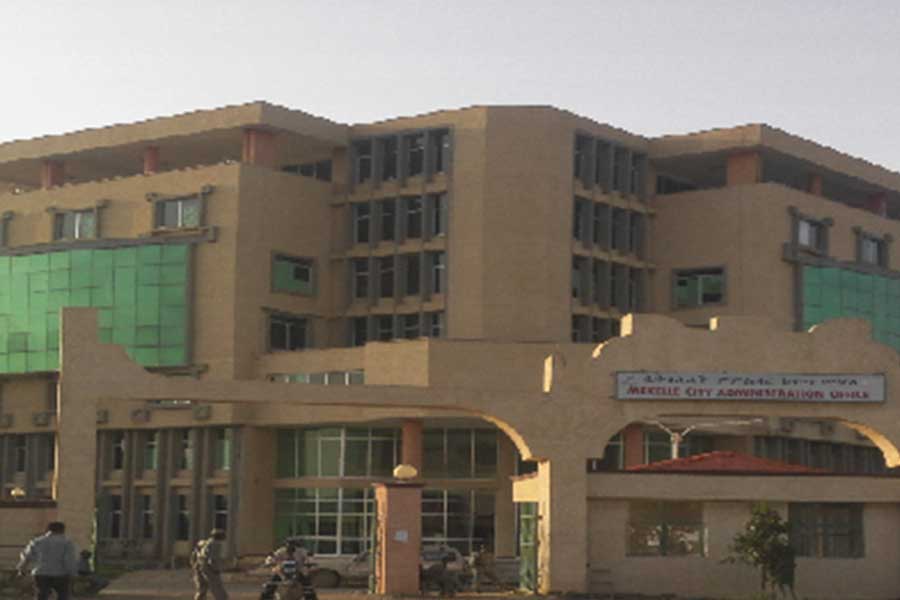
Fortune News | Aug 22,2020
Dec 25 , 2021
By HAWI DADHI
Two dozen microfinance institutions (MFIs) have deployed a shared core banking system developed in-house at their association's base at the cost of three million dollars.
The system has been in development for three years at the Association of Ethiopian Microfinance Institutions' headquarters. The International Fund for Agricultural Development (IFAD) covered more than half of the development cost while the institutions paid for the balance.
IFAD’s contribution is part of the second phase of a rural financial intermediation programme that ended in 2019. It has provided a little over 100 million dollars in financing over the past decade. The Fund plans to extend 35.1 million dollars in grants and nearly five million dollars in loans to deliver rural financial services customised to fit the needs of smallholder farmers through the third phase, which kicked off last year.
Close to 42 microfinance institutions serve five million customers, of which the majority reside in rural areas. They had mobilised 52.5 billion Br in deposits by the end of last year and disbursed 69.3 billion Br in loans.
However, a lack of automation and digital systems has been one of the hurdles in the microfinance industry.
The core banking solution deployed was acquired from Craft Silicon, a Kenya-based technology solutions provider. The project entails shared infrastructure (data centre), core banking solutions, and technical support for all the institutions. Eighteen of the microfinance institutions in the project have already begun deploying the system, while some are finalising the integration process. According to Teshome Kebede, executive director of the Association, the remaining are lagging due to internal preparation.
The Association hosts the data centre in its main office on Africa Avenue (Bole Road), opposite Mega Publishing & Distribution Plc. This is meant to cut the significant costs associated with building a separate data centre for each institution in addition to the expenditures on system acquisition and maintenance.
Dire Microfinance Institution (DMI), based in Dire Dawa town, is one of the institutions using the system in all 22 branches. An early entrant, it has been using the system for the past six months and completed data migration. With the staff already trained and a dedicated IT team providing support, the operation has been going smoothly, according to Teshome Abebe, general manager of DMI.
"It's useful to acquire reliable and timely data," said Teshome.
Dire Microfinance has about 40,000 deposit accounts and 10,000 borrowers.
Ambessie Chaka, general manager of Dynamic Saving & Credit, a microfinance institution that serves over 53,000 active customers, echoes Teshome’s views.
Manual operations were inefficient and failed to provide real-time information while generating reports was a time-taking process, according to him. The institution used Peachtree, an accounting software, and manual recording before deploying the new system at its 26 branches and 12 sub-branches. Teshome has observed operations go more smoothly following the implementation of the new system.
"There’s no question about it," says the General Manager.
However, there are still problems that require attention. Reliable Internet connectivity and not finding dedicated IT personnel are impediments that need to be addressed, according to Teshome.
While some of the more well-established microfinance institutions such as Omo and Nisir have their core systems, relatively small ones such as Rays and Wasasa have also joined the game.
Wasasa, headquartered in Alemgena in the outskirts of Addis Abeba, was one of the earliest microfinance institutions to deploy its own core banking system seven years ago. The microfinance, which serves 200,000 customers, was initially searching for a platform to migrate from its fully manual operations. It attempted to implement an Uganda-based system dubbed “Loan Performer”, but implementation was unsuccessful.
“Later, we found out that banks were deploying core banking systems,” said Amsalu Alemayehu, general manager of Wasasa. “We decided to make a long-term investment."
Wasasa bought a solution from an Indian company, Infrasoft Technologies Ltd., at the cost of 5,000 dollars a branch. It now operates 48 branches in urban areas, all integrated into the system, and 25 rural offices it administers through four branches that have also implemented the solution.
The costs associated with infrastructure development and maintenance are far higher than system procurement, says Amsalu. He advises that MFIs deploying the shared core banking system should commit to using the system entirely.
“Although they have not absorbed all the cost themselves, they should be committed and take advantage of it," he said
There is dynamism in banking technology, and users have to constantly upgrade their systems, which is expensive, according to Amsalu.
Wasasa is now expanding to agent banking, acquiring a solution its credit officers will use while conducting fieldwork in rural areas. The tablet-like technology has biometric features and issues receipts on-site.
PUBLISHED ON
Dec 25,2021 [ VOL
22 , NO
1130]

Fortune News | Aug 22,2020

Fortune News | Apr 04,2020

Radar | Apr 12,2020

Fortune News | Jan 30,2021

Fortune News | Jan 05,2019

News Analysis | Dec 02,2023

Fortune News | Feb 22,2019

Fortune News | Feb 13,2021

Radar | Aug 05,2023

Fortune News | Dec 04,2022

Dec 22 , 2024 . By TIZITA SHEWAFERAW
Charged with transforming colossal state-owned enterprises into modern and competitiv...

Aug 18 , 2024 . By AKSAH ITALO
Although predictable Yonas Zerihun's job in the ride-hailing service is not immune to...

Jul 28 , 2024 . By TIZITA SHEWAFERAW
Unhabitual, perhaps too many, Samuel Gebreyohannes, 38, used to occasionally enjoy a couple of beers at breakfast. However, he recently swit...

Jul 13 , 2024 . By AKSAH ITALO
Investors who rely on tractors, trucks, and field vehicles for commuting, transporting commodities, and f...

Sep 13 , 2025
At its launch in Nairobi two years ago, the Africa Climate Summit was billed as the f...

Sep 6 , 2025
The dawn of a new year is more than a simple turning of the calendar. It is a moment...

Aug 30 , 2025
For Germans, Otto von Bismarck is first remembered as the architect of a unified nati...

Aug 23 , 2025
Banks have a new obsession. After decades chasing deposits and, more recently, digita...